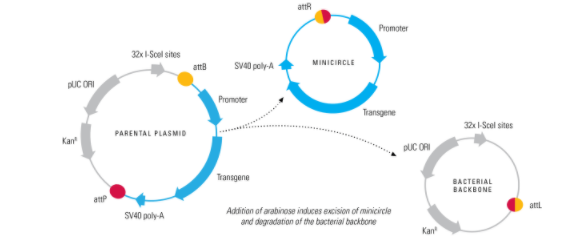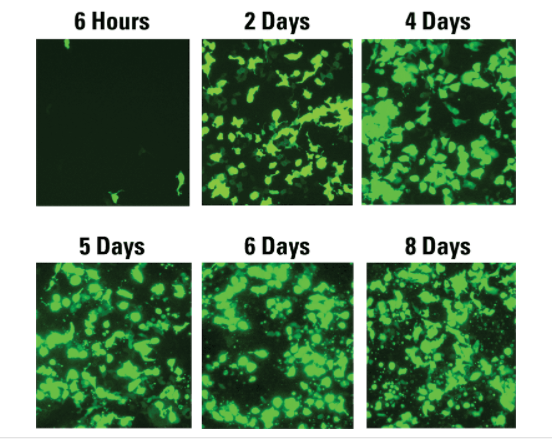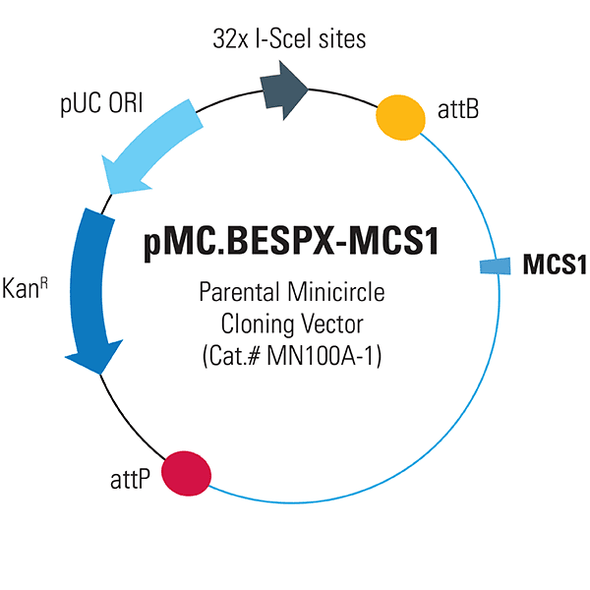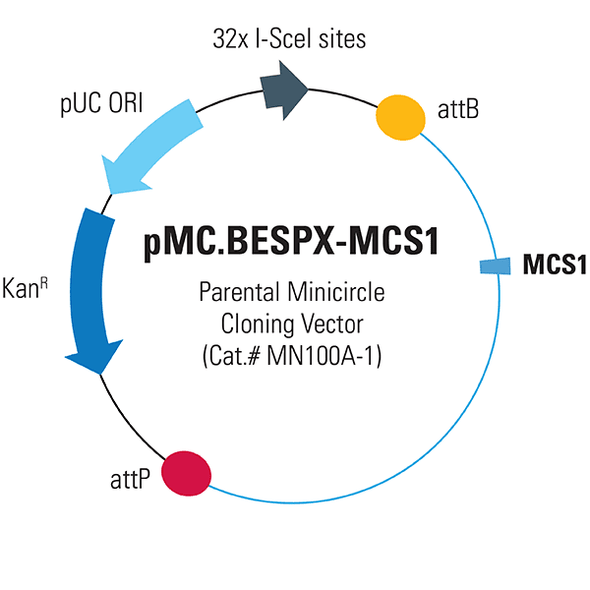System Biosciences
pMC.CMV-GFP-SV40PolyA (positive control)
- SKU:
- MN601A-1
- Availability:
- Usually Shipped in 5 Working Days
- Size:
- 10 ug
- Shipping Temperature:
- Blue Ice/ Dry Ice
- Qualifications:
- Academic/ Non-profit customers only
Description
pMC.CMV-GFP-SV40PolyA (positive control). Cat# MN601A. Supplier: SBI System Biosciences
- Episomal expression sustained over weeks
- Foreign DNA-free
- More efficient transfections from small plasmid size
- Unlimited insert size
- Optimized coli minicircle production strain
Products

Overview

- Episomal expression sustained over weeks
- Foreign DNA-free
- More efficient transfections from small plasmid size
- Unlimited insert size
- Optimized coli minicircle production strain
- Works in vitro and in vivo
How It Works
Generating minicircles from the parental cloning vector
To generate minicircles that are ready for transfection, you need your Minicircle Cloning Vector with your insert (gene, promoter-gene cassette, small RNA, etc.), SBI’s optimized, ready-to-transform ZYCY10P3S2T E. coli Minicircle Producer Strain (Cat.# MN900A-1), and arabinose (Cat.# MN850A-1).
Minicircles are produced from the full-sized Parental Minicircle using PhiC31 Integrase, which mediates a recombination event between the PhiC321 attB and attP sites on the parental plasmid (Figure 1). This reaction results in two products—the minicircle, which is now free from any bacterial DNA sequences—and the parental plasmid. To get rid of the parental plasmid, the I-SceI endonuclease recognizes and acts on the I-SceI sites on the parental plasmid, resulting in degradation of the parental plasmid.

Figure 1. Generating minicircle DNA from the Parental Minicircle Plasmid.
More about the ZYCY10P3S2T E. coli Minicircle Producer Strain
The Minicircle Producer Strain harbors an arabinose-inducible system to express the PhiC31 integrase and the I-SceI endonuclease simultaneously. The ZYCY10P3S2T strain also contains a robust arabinose transporter LacY A177C gene. Adding arabinose to the media turns on expression of the PhiC31 integrase and endonuclease genes, resulting in separation of the Parental Minicircle Plasmid into the individual minicircle and parental plasmids (from the PhiC31 Integrase activity), and the degradation of the parental plasmid (from Sce-1 endonuclease activity).
Supporting Data
Achieve sustained expression from minicircles after transfection in vitro and in vivo

Figure 1. Easy, sustained transfection in most cell types. Transfection of 1 μg of minicircle DNA (pMC.CMV-MCS-EF1-GFPSV40PolyA, Cat.# MN511A-1) into HEK293 cells delivers over one week of robust gene expression.














